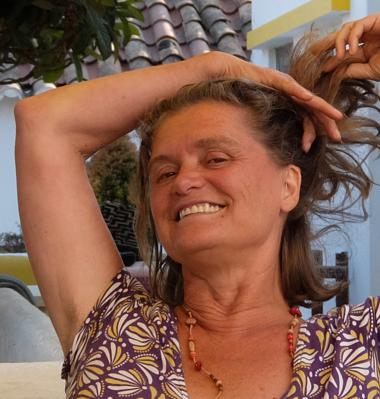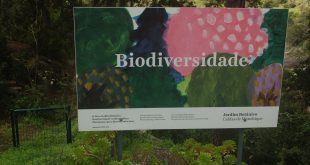Wednesday, 20th May 2020
by Leila Dregger
Imagine – yes, I know this calls for a lot of fantasy as it’s highly unlikely to ever happen – but, despite everything, just imagine that a pandemic might put an end to all global trade forever. There would no longer be any cheap mass-produced goods coming from China and the container ships from Asia would no longer dock in our ports. It wouldn’t be just the whales who started to live with less stress. It would be ruinous for banks, and lots of multinationals would start collapsing like dominoes. The shelves in supermarkets would suddenly be empty. And then what?
What came next would depend on the preparations that had been taking place at a regional and local level. And the good news, in a situation like this, is that, here in Portugal, and especially in the Alentejo, we would have excellent chances of survival. Why don’t we start by listing what we really need to live? Food, of course. Up till now – ever since we joined the EU – 80% of our food has been imported. But it wasn’t always like this. The old people living in the Alentejo still remember how, during their childhood, (almost) everything they needed to live was produced locally – cereals, vegetables, meat, aromatic and medicinal herbs, fruit, honey, olives and olive-oil, wool, building materials and firewood. Even though the plains seem completely deserted in summer, they have a tremendous agricultural potential, with crops being harvested all year round. The agro-industrial investors are well aware of this, and so they have swarmed here in great numbers like flies around a pot of honey, if flies will forgive me for making this comparison.
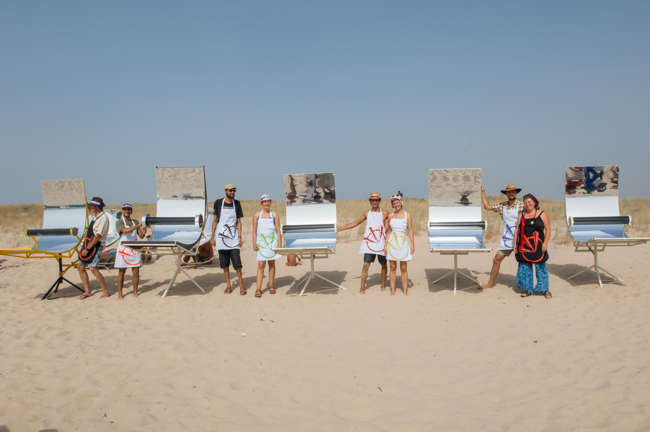
However, the destruction of the forests, the unnecessarily deep ploughing of the land, agrochemicals and climate change have made conditions much worse. However, there are modern techniques, such as crop rotation, organic farming, permaculture and the montado or agro-forestry system of farming that can reverse the damage and improve the quality of our soils. There are models and companies that have demonstrated this perfectly. What more do we need?
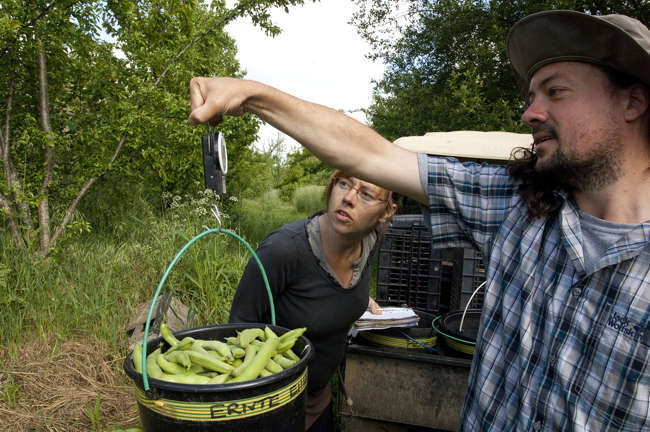
We need water, of course! But almost no-one believes me when I say that the average rainfall here is the same as it is in my home country, in Berlin (600 mm). But this is the reality – or, at least, it was. There’s a shortage of water in the summer because all the rain falls in winter. But, if you visit the wonderful inland regions, near Vila Nova de Milfontes, you’ll find that there’s lots of springs. The region was once a genuine paradise full of water all year round. There’s a lot that needs to be regenerated, a landscape of open sores that can be cured through reforestation with diversity. But, until this measure begins to have an effect, we need to find ways to make sure that the water remains in the land. The advance of the desert can be brought to a halt with water retention landscapes, composed of lakes, ditches, forests and swales, all of which can be created in a decentralised fashion. One successful example of the application of such measures was shown to us by Dr. Rajendra Singh, in Rajasthan (India). His initiative was responsible for reactivating 10,000 traditional water retention basins, bringing this asset back to seven rivers that had dried up, and bringing life back again to 2,000 abandoned villages. The same can be done in Portugal and there are already landowners who have begun to follow this path, although many more will have to join them for the land to become fertile again and for the springs to start providing us with water once more. What more do we need?
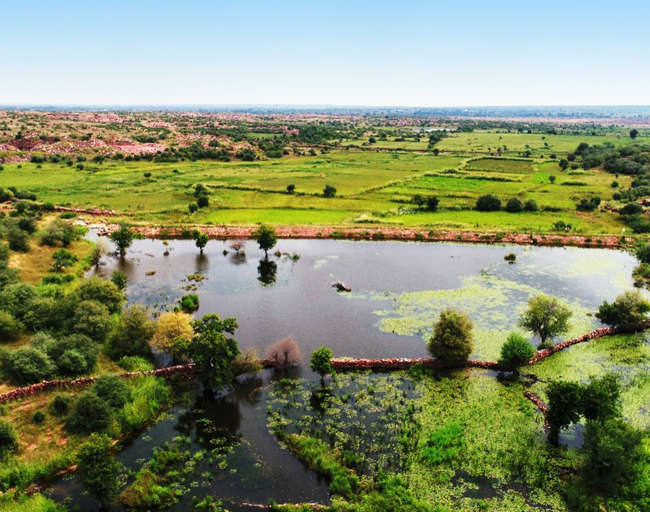
We need energy, of course! But that is the easiest problem to solve in a region that has the highest percentage of sunshine in the whole of Europe. How will we be able to install photovoltaic energy without globalisation? With local production. We have to foster research and local production, not only of photovoltaic energy, but also of solar ovens, for example, which is what Celestino Ruivo, from the University of the Algarve, has already been doing for many years now. Or we can also use high-performance solar mirrors, like the high-tech ones that have been developed in the community of Tamera. The Alentejo region could become the benchmark for research into solar energy – particularly for studying the equipment that would be needed for industrial production. And what more do we need?
Besides all kinds of things, we also need one another. We need the human component. And, in this respect, should there be a collapse of our global systems, there’s no other place I’d rather be living than here in the Alentejo. I think that the social structure and multiculturalism of the Portuguese population – with all of its weaknesses – will be more resilient, more neighbour-friendly in moments of adversity and fear, than the urban society of northern Europe. This is the time when we should really begin to invest in cooperation and neighbourliness.
This isn’t an investment that is fuelled by money, but instead it is achieved through kindness, sympathy, cooperation and mutual assistance. The Alentejo therefore has the best conditions: food, water, energy and a sense of community. The time has come to recognise these resources, to improve and develop them.
 Eco123 Revista da Economia e Ecologia
Eco123 Revista da Economia e Ecologia

